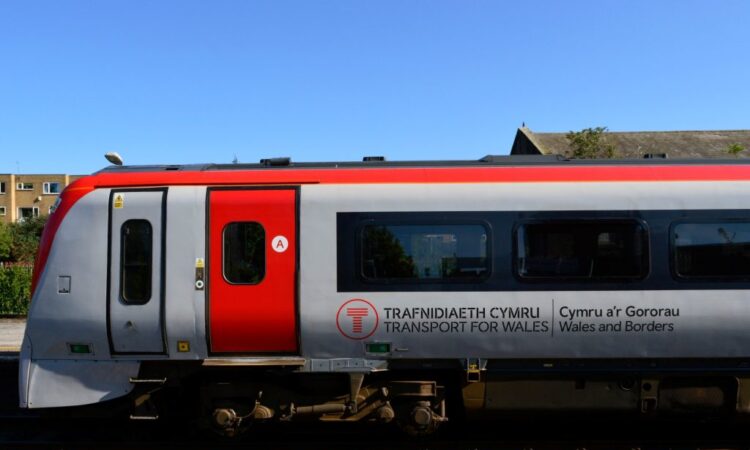
The classification of High Speed 2 (HS2) as an England and Wales project is a disbenefit to Wales that is depriving it of £5bn of vital investment in its rail network, according to Welsh MPs.
A Westminster Hall debate about railway infrastructure in Wales, which took place on 10 May, saw Welsh MPs confirm plans to push for HS2 to be reclassified as an England-only project and for devolution of rail infrastructure planning and funding in Wales.
The debate saw MPs for constituencies in Wales explaining how current rail infrastructure funding is unfairly hampering the country. They are looking to change this as they have identified many areas in need of renewal and upgrade that will be liable to failure without fair investment.
The operation of the railway in Wales is a Welsh Government responsibility. However, infrastructure planning and the funding of Network Rail in Wales remains reserved to the UK Parliament. The UK government generally combines rail infrastructure spending for both England and Wales in its reporting, making it difficult to disaggregate what spending goes only to Wales, according to the Commons Library briefing for the debate.
However, an inquiry by the Welsh Affairs Committee heard that the funding was “disproportionally low” and a report carried out for the Welsh Government in 2018 estimated that, while 11% of all tracks in the UK are in Wales, they received just over 1% of the enhancement budget for the 2011-2016 period.
MP for Neath Christina Rees introduced the debate in Westminster Hall, referencing the disparity: “While some improvements have been made in recent years, such as the electrification of the South Wales mainline, there is still a significant funding gap in the infrastructure’s maintenance and modernisation.”
Improving this and ensuring that the Welsh railway is fit for purpose in the years ahead “will require funding from both the Welsh government and the UK government, as well as the private sector”, she said.
She said that the current means of organising strategic decisions and funding allocation for vital infrastructure is “grossly inefficient”, but that “there are avenues for a substantial increase in investment if changes are made at UK level as to how funding for investment is allocated”.
The key issue was around HS2 and how it impacts Wales. “HS2 is classed as an England and Wales project despite not a single foot of track being laid in Wales,” Rees said. “This means that unlike Scotland and Northern Ireland, Wales will not receive a penny in funding as a result of Barnett consequentials [additional funding given to devolved governments as a consequence of additional spending by the UK government].”
Rees continued: “Had HS2 been classified as an England only project, which it clearly is, Wales would have received an additional £5bn of funding, which could have been used as a vital investment in its railway infrastructure.”
HS2 had been classified as an England and Wales project because it is supposed to improve connections from North Wales to London, but Rees called this “intangible”. “Indeed, the general consensus is that HS2 will negatively impact Wales,” she added. “Wales suffers while billions continue to be swallowed up by a project that no longer works.”
MP for Cynon Valley Beth Winter added that the disbenefits of HS2 for Wales are a “scandal”. “It’s a total disregard for the devolution settlement and it is a disgrace that it’s not classified as an England only project,” she said. She noted that last month a motion was unanimously passed in the Welsh parliament to call on the UK government to re-designate HS2 as an England-only project and provide Wales with the resultant consequentials. “It is the right thing to do,” she said.
She also expressed outrage at the news that Northern Powerhouse Rail is going to be classified as an England and Wales project despite the fact that none of the track will be in Wales.
Rees concluded: “Primarily, we need the UK government to help and commit to fund and support delivery to 2030”, and listed a range of rail enhancement schemes that are needed. These include:
- Upgrade of the South Wales mainline
- Cardiff Parkway station
- Electrification to Swansea
- Electrification on the Vale of Glamorgan line
- Electrification on Filton Bank to Bristol Temple Meads
- Upgrade of the Borderlands line to connect Wrexham or north east Wales to Liverpool
- Capacity enhancement at Chester
- Capacity enhancement of the North Wales mainline
- First phase of Swansea Bay rail metro
- Addressing network capacity issues at Cardiff West junction
The MPs said they will push for HS2 to be reclassified as and England only project and for devolution of rail infrastructure planning and funding in Wales.
Like what you’ve read? To receive New Civil Engineer’s daily and weekly newsletters click here.






